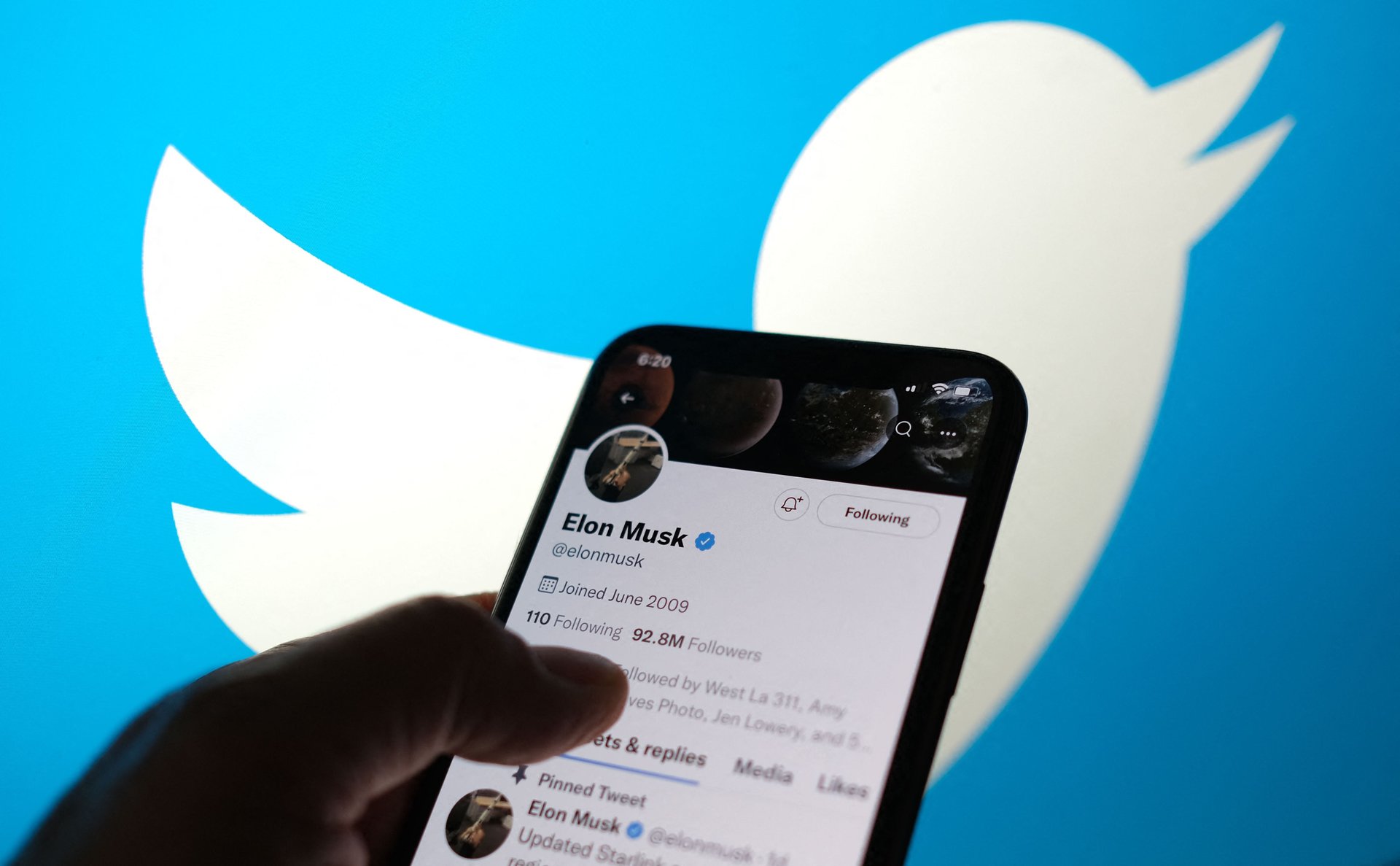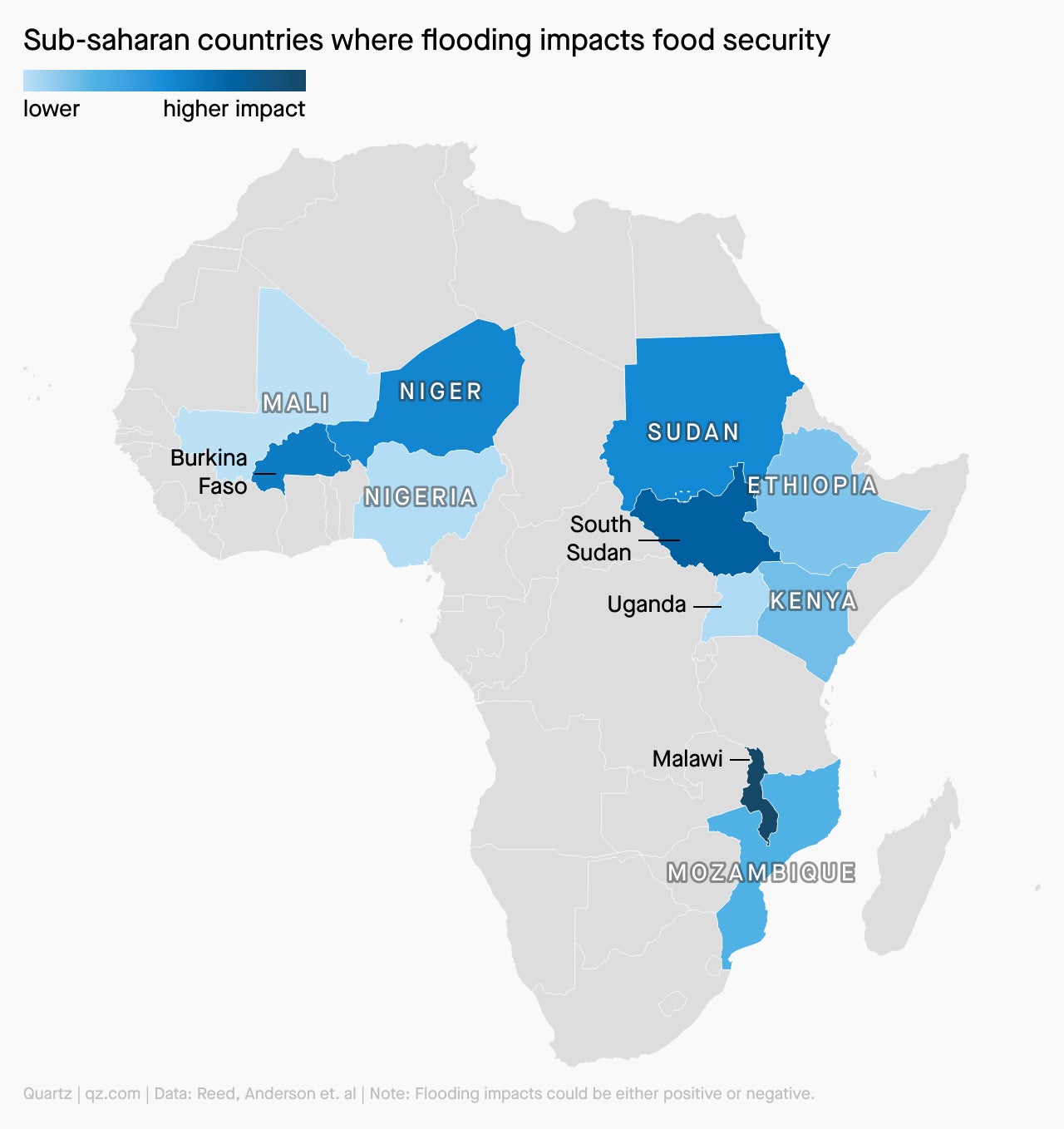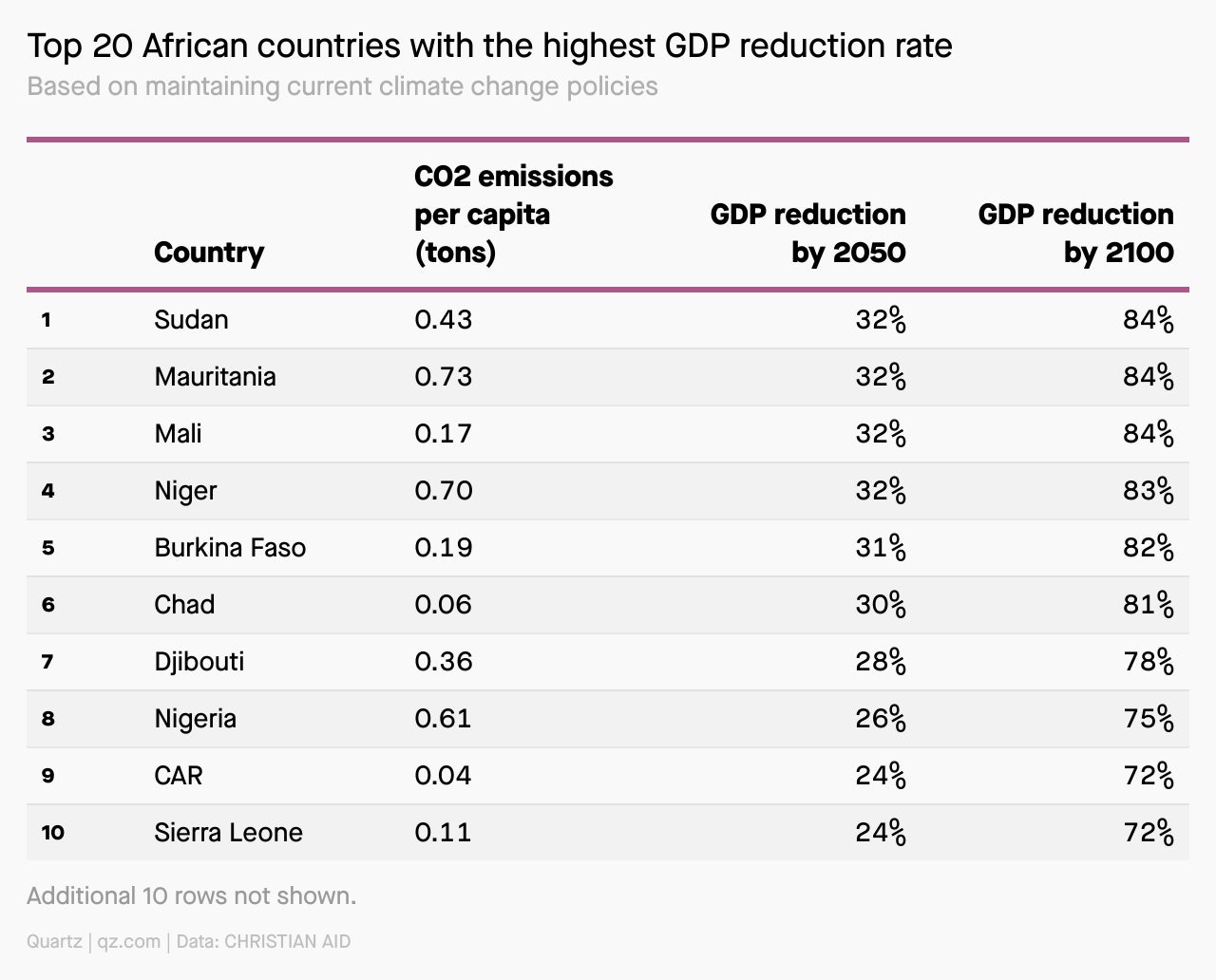Twitter’s trials and tribulations in Africa
Plus: COP27 is flooded by hundreds of fossil fuel lobbyists

Dear Quartz Africa readers,
Elon Musk’s first acts as Twitter’s owner included impulsive account suspensions and insisting everyone pays $8 for a blue checkmark, going against the ethos of what being verified means. But the most shocking events of the new regime so far remain the massive staff layoffs, which also affected the barely one-year-old Africa team.
Twitter announced the opening of its first Africa office in April last year because then CEO Jack Dorsey believed Twitter could help shape African democracy. Ghana was the take-off point, although those employed worked remotely. This month, staff converged in Accra to mark the opening of their physical office, but the enthusiasm was short lived.
Musk’s Twitter told its Africa team that their services were no longer needed because “the company is reorganizing its operations as a result of a need to reduce costs,” as CNN reported. Up to half the team was dismissed on Nov. 4, according to TechCabal. As it happened to their colleagues in the US, staff in Ghana also reported being locked out of emails and receiving zero communication around severance.
More urgent problems at Twitter, like the recent departures of senior veterans responsible for privacy, and security on the platform, downplay the gravity of the African layoffs. The imminent end of the Africa team leaves a lingering suspicion that it was a vanity project for the company all along. It’s an opportunity to look back at other Big Tech office openings in Africa to determine whether they too are only on the continent for a good time and not a long time.
The sun could rise again on Twitter Africa if, somehow, Musk gains the knowledge and humility needed to run a global media platform. But don’t hold your breath—all of this started as a $150 million weed joke and it could get worse.
—Alexander Onukwue, west Africa correspondent
What to watch for in the Quartz Africa member brief

By the digits
80%: Imported fertilizer as a share of the total used in Africa
52%: The share of Ghana’s fertilizer imported from Russia, Ukraine, and Belarus
350,000 tons: Ghana’s fertilizer shortage as a result of the Ukraine war
$4 billion: The value of African food production lost post-harvest every year
$75 million: Total venture funding for agritech startups in Africa in 2021, up from $1 million in 2019 and $10 million in 2020
1%: The share of global venture funding received by African agritech startups in 2021
Learn more about Farmerline, a Ghanaian agritech startup in this past week’s edition of the Quartz Africa Member Brief. To get the Member Brief directly in your inbox (and save 40%), become a member today!
Stories this week
Uganda went to space in style. In a first for the continent, the east African country will 3D print human organs in space. Faustine Ngila details how that works.
Africa’s best player will miss the World Cup. Senegalese star striker Sadio Mané is all but set to miss the upcoming soccer tournament after sustaining an injury. Alexander Onukwue explains why it is a massive blow to Africa’s pursuit of glory at the games.
COP27 is flooded by hundreds of fossil fuel lobbyists. Tim McDonnell calculates that if they were a bloc of delegates, fossil fuel lobbyists would be larger than any nation’s group at COP27, apart from the 1,000-person strong delegation from the United Arab Emirates, host of next year’s COP28.
Flooding threatens African food supplies just as much as drought. Though flooding events have become more frequent and intense, their impact on food supplies is complicated to measure because they can have a variety of effects, ranging from positive to negative, Clarisa Diaz reports.

A dozen African countries lost millions to hackers. A hacking group based in an unknown Francophone African country stole $11 million from 12 countries. Faustine Ngila explores the strategies that made the criminals successful, such as old-school methods, and mostly working during weekends.
Nigeria’s elections tracker is ready for 2023. Stears, a Lagos-based data and media startup, is rebooting an online data tracker it first launched three years ago to give real-time information on Nigeria’s election results. Alexander Onukwue writes about what will be different this time.
Charting climate change’s impact on Africa’s GDP
The combination of climate funding shortfalls from the west and African countries not aligning to climate change policies of keeping global temperature rise to 1.5 degrees Celsius as set out in the Paris Agreement, could see African countries lose 64% of their GDP due to climate change devastation. This is according to a report (pdf) released by UK relief agency Christian Aid on Nov. 9. Faustine Ngila reports on the countries that would be hardest hit.

Get updates from the COP27 climate summit sent directly to your inbox with our Need to Know: COP27 pop up newsletter. Sign up today.
Yassir, an Algerian super app, raised $150 million from Bond (a Kleiner Perkins alumnus’s firm), DN Capital, Dorsal Capital, Quiet Capital, Stanford Alumni Ventures, and Y Combinator. Yassir features ride-hailing, food and grocery delivery, and payments services present in 45 cities across six countries. The investment means the company has raised $193 million since it was founded in 2017.
Quartz Gems
China’s multi-billion-dollar market rally is based on a…screenshot
What’s moving Chinese markets these days—to the tune of hundreds of billions of dollars—isn’t stellar GDP figures (when they aren’t delayed) or central bank interest rate moves, but something decidedly more nebulous: rumors and intrigue.
Last week, a mysterious four-paragraph screenshot of unknown origin and uncertain authenticity sparked a massive rally of some $450 billion in Chinese equities. The unverified post claimed that senior government officials held a meeting to “speed up a conditional opening plan” from the current zero-covid policy. Beijing denied the rumors, but the Shanghai, Shenzhen, and Hang Seng indices kept on keeping on.

The massive about-face comes less than two weeks after a steep sell-off following the Chinese Communist Party’s quinquennial congress, in which president Xi Jinping secured a third term as party chief, and stacked the elite 24-member Politburo with loyalists.
Other things we liked
Rwanda has been feeding the US and Interpol fake intel. For the OCCRP, Carlos Mureithi (a former Quartzian) and Kira Zalan detail how Rwanda’s intelligence police have been deliberately giving the FBI and Interpol wrong information about alleged criminal violations by members of the Kagame regime.
Eight Nigerian-Americans won legislative seats in the US. The Vanguard’s Biodun Busari profiles these winners of respective elective posts in Georgia, Pennsylvania, Minnesota and the District of Columbia (DC) in the US midterm elections.
There’s now an online database tracking looted Benin Bronzes. The Guardian’s Philip Oltermann describes how over 5,000 stolen pieces looted in 1897 and scattered across Europe and North America have been identified so far.
King Charles III hosted the Nigerian president at Buckingham palace. The BBC’s Ishaq Khalid writes that the meeting between the monarch and Muhammadu Buhari centered mostly on economic ties.
Kenya’s deputy president is off the hook in a $60 million corruption case. Aljazeera explains that lack of evidence made a Nairobi court drop all charges against Rigathi Gachagua and nine other suspects.
Ethiopia peace talks are extended. For the AP, Cara Anna reports that the negotiations in Nairobi needed one more day to allow military commanders to discuss a plan to disarm Tigray forces, after a “permanent cessation of hostilities” was agreed at African Union-led talks last week.
ICYMI
Get up to $50,000 for your business. The 2023 Anzisha Prize is open for applications for young African entrepreneurs aged 15-22 years. The fellowship is a three-year program that celebrates and rewards a total of $200,000 every year to young entrepreneurs with a maximum of $50,000 per business. (Nov. 27)
Apply for up to $200,000 in climate financing. African Agriculture Climate Adaptation Research System is calling for proposals for research work that will help to tackle climate change in Africa. Winning seed projects will be awarded $100,000, while those that transition to scale will receive $200,000. (Jan. 15)
This week’s brief took you to 🇰🇪, 🇳🇬, 🇬🇭, 🇪🇹, 🇪🇬, 🇸🇳, 🇩🇿, 🇷🇼, and 🇺🇬
Our best wishes for a productive and ideas-filled week ahead. Please send any news, comments, suggestions, ideas, fertilizer vouchers, and returned Benin Bronzes to [email protected]. You can follow us on Twitter at @qzafrica for updates throughout the day.
If you received this email from a friend or colleague, you can sign up here to receive the Quartz Africa Weekly Brief in your inbox every week. You can also follow Quartz Africa on Facebook.